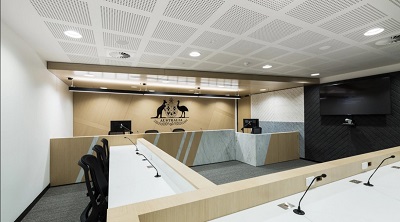QCAT has jurisdiction over a wide range of small claims disputes, including matters related to debts, goods and services, residential tenancy disputes, and minor civil dispute involving amounts up to a certain monetary limit of around $25,000.
QCAT can hear some family law matters related to:

Guardianship and administration: This includes matters related to decision-making for adults who lack capacity, such as appointing guardians or administrators.
Child protection: QCAT can deal with matters related to child protection, including applications for child protection orders.
Domestic and family violence: QCAT can hear applications for domestic violence orders.
However, QCAT’s jurisdiction over other aspects of family law, such as divorce, property settlements, and parenting disputes, is limited. These matters are typically dealt with by the Family Court of Australia or the Federal Circuit Court of Australia.
Filing a Claim
To commence proceedings in QCAT, the claimant (plaintiff) must complete and lodge the appropriate application form, along with any supporting documents and the required filing fee.
The claim form should outline the details of the dispute, including the parties involved, the nature of the claim, and the relief sought.
Notice of Claim
Once the claim is lodged, QCAT will serve a notice of claim on the respondent (defendant), informing them of the claim and providing an opportunity to respond.
Conciliation Conference.
In many cases, QCAT will schedule a conciliation conference to encourage the parties to reach a settlement without the need for a formal hearing.
The conciliation conference is facilitated by a QCAT member who acts as a neutral mediator to assist the parties in negotiating a resolution.
Hearing

If the dispute is not resolved at the conciliation conference or if either party requests a hearing, the matter will proceed to a formal hearing before a QCAT member.
At the hearing, both parties have the opportunity to present their evidence, call witnesses, and make submissions.
QCAT members have the authority to make legally binding decisions on the dispute based on the evidence presented and applicable law.
Decision
After considering the evidence and submissions, the QCAT member will issue a written decision, outlining their findings and any orders made.
The decision is final and binding on the parties unless appealed to a higher court on a point of law.
Enforcement
If the respondent fails to comply with the QCAT decision, the claimant may seek enforcement of the decision through various means, such as garnishment of wages, property seizure, or other enforcement mechanisms available under Queensland law.
Costs
In small claims disputes, parties generally bear their own costs, although QCAT may award costs in exceptional circumstances or where a party has acted unreasonably.
Overall, QCAT proceedings for small claims provide a relatively quick, accessible, and cost-effective means of resolving disputes outside of the formal court system, with an emphasis on conciliation and informal resolution wherever possible.
Need legal help
Contact James Noble Law to arrange a free 20 Minute Consultation to discuss your individual QCAT Proceedings And Family Law needs.
Find us on Google Maps:



You may also like to know more information about the
- Bankruptcy and family law proceedings
- Legal costs in family law proceedings
- Property proceedings Assessment of a parts interest in matrimonial property
- Notice of Child Abuse, Family Violence, or Risk in Parenting Proceedings
- Psychologist Involvement in Family Law Proceedings
- Ensuring Justice and Protection: The Vital Role of Independent Childrens Lawyers in Cairns Family Law Proceedings
- What do I need to consider before commencing Court Proceedings against my Ex in the Federal Circuit and Family Court of Australia

Comments
Post a Comment